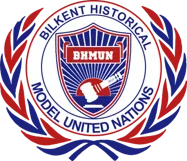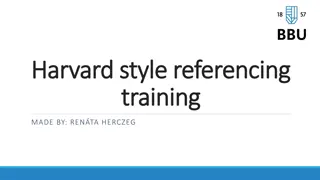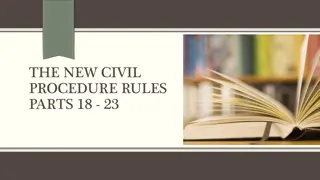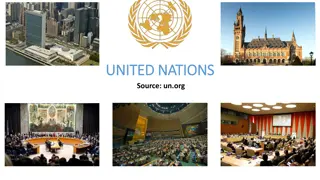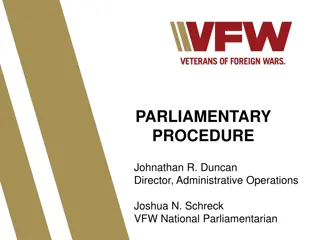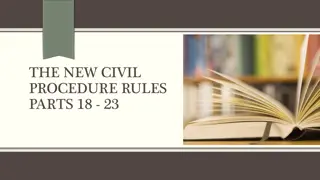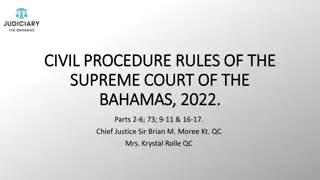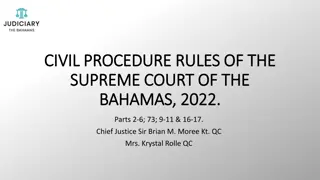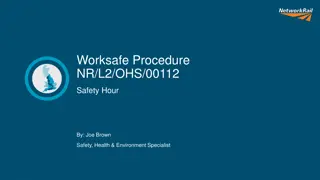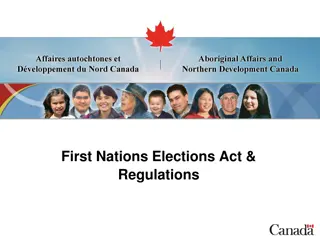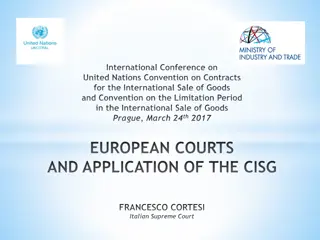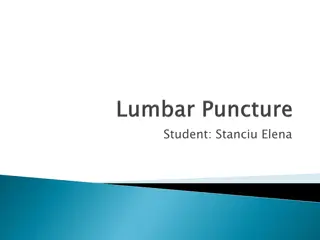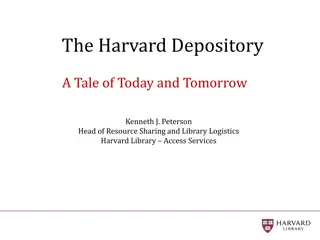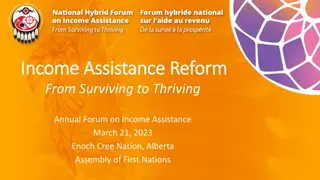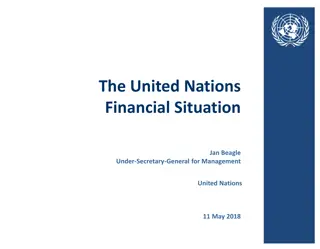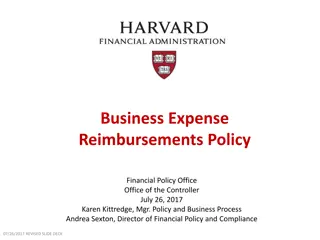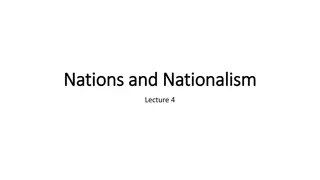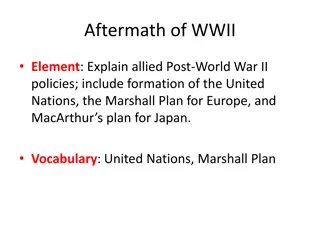Harvard Procedure Guidelines and Rules for Model United Nations
In this guide, you will explore the rules and procedures specific to the Harvard Procedure in Model United Nations. It covers general rules, guidelines on resolutions and voting, language requirements, courtesy expectations, rules of procedure, motions, points of order, and parliamentary inquiries. Adhering to these guidelines ensures productive and respectful debate and collaboration within MUN committees.
Download Presentation

Please find below an Image/Link to download the presentation.
The content on the website is provided AS IS for your information and personal use only. It may not be sold, licensed, or shared on other websites without obtaining consent from the author. Download presentation by click this link. If you encounter any issues during the download, it is possible that the publisher has removed the file from their server.
E N D
Presentation Transcript
INTRODUCTION TO HARVARD PROCEDURE
Contents General Rules 1 General rules for MUN Rules of Procedure 2 Rules specific to the Harvard Procedure Rules Governing Resolutions & Voting 3 The path to writing a resolution & voting on it
PART 1 GENERAL RULES FOR MUN
Language No language other than English should be spoken in the committees at any time. All documentation must be in English. All attendants are highly encouraged to speak English at all times.
COURTESY Delegates must remain respectful to the Committee Staff at all times. Delegates must respect one another and refrain from making any offensive statements, whether that be personal insults or attacking a country s policy. All delegates must keep in mind that neither they nor others will be making any arguments based on their personal beliefs/opinions/preferences. Certain countries may have racist/sexist/homophobic policies etc. The delegates of these countries must be careful not to cross the line between diplomacy and being downright offensive, no matter how inhumane the policies might be.
PART 2 RULES OF PROCEDURE
Rules Regarding Procedure MOTIONS: MOTIONS: Motion to Motion to Set the agenda item (as ) Set the agenda item (as ) Start a moderated caucus (specific topic: total time: individual time) Start a moderated caucus (specific topic: total time: individual time) Start an unmoderated caucus (specific topic: total time only) Start an unmoderated caucus (specific topic: total time only) There cannot be an unmoderated caucus without a moderated one first. There cannot be an unmoderated caucus without a moderated one first. Move on to voting procedure Move on to voting procedure Suspend Suspend/ /Adjourn Adjourn meeting etc. meeting
POINTS Point of Point of Personal Privilege (Bathroom break, closing/opening a window etc.) Personal privilege due to inaudibility (The only point that can interrupt another delegate s speech) Order (Raise your placard and state this if you believe your chairs or not following the correct procedure) Parliamentary Inquiry
GENERAL SPEAKERS LIST Chairs of the committee will decide to move on with the General Speakers List if there are no motions when the floor is open.
PROCEDURAL VOTING Any voting that is not a matter of resolutions is considered procedural. Chair asks for seconds. Those who second raise their placards. Chair asks for objections. Those who object raise their placards.
STATEMENTS FROM THE SECRETARIAT The Secretary-General or anyone delegated by her has the right to make written or oral statements to the committee at any time.
CRISIS COMMITTEES BHMUN has two crisis committees; DISEC and UNSC. In these committees, the Secretary-General (or designated person) has the right to interrupt at any time and present to the committee a new crisis that will change the course of the debate.
UNDER SECRETARY-GENERALS USGs are the people who oversee committees. They write the study guides and check the resolutions. They can observe the committee to help set you in the right direction.
PART 3 RULES GOVERNING RESOLUTIONS AND VOTING
WORKING PAPERS Working papers are proposals for committee consideration that help form a draft resolution. They don t need to be in official format. Not official documentation. Do not require signatories or votes of approval.
DRAFT RESOLUTIONS May be introduced with the approval of the chair and 10 signatories. The signatories don t have to agree with the draft resolution, they could just be willing to debate on it & are allowed to give speeches against. At least 2 for & 2 against speeches are required. Only one resolution may be passed per topic area.
AMENDMENTS Delegates can amend to a draft resolution once it has been formally introduced by adding, removing, or revising clauses. An amendment must have the approval of the chair. Other conditions differ between committees (your chairs will provide you with further information).
SUBSTANSIVE VOTING Voting on draft resolutions and amendments. Voting on draft resolutions and amendments. Delegates may vote Yes, No, or Abstain. Abstaining votes are not counted. At this time, no interruptions in the committee are allowed and chambers are sealed.
PLENARY SESSIONS During the Plenary Sessions, the General Assembly gets together to discuss resolutions from each committee. Primary signatories for the draft resolutions will be expected to give speeches and present their resolutions.
Please remember to be kind to each other. We are all here to learn and improve ourselves, and while debates can be very fun, it is important that we respect one another.


